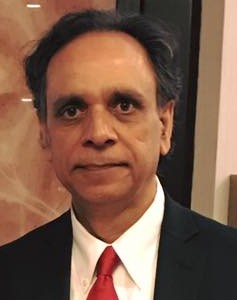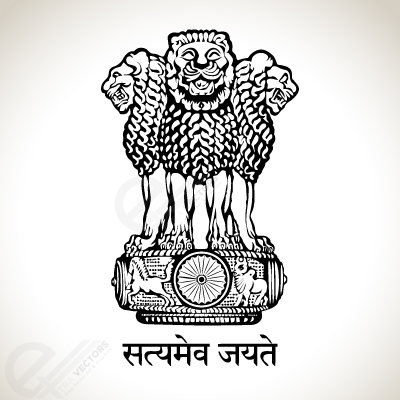By Upendra Mishra
I have the memory of only three books from early childhood. The first one was Hindi alphabets, the second was Ramayana and third one was the great epic Mahabharata. I could not read and understand Ramayana and Mahabharata then, but would always hear stories from them from my grandfather and elderly villagers.

When I became a teenager, it were the messages and values instilled by Mahabharata stories that shaped my own value system. What is the key message of Mahabharata then?
After composing the great epic Mahabharata, sage Vyasa asked his son, Shukdev, to read the epic to him. Shukdev read Mahabharata to his father and summarized it thus: “The truth is Dharma. Nothing in this world is above Dharma. It gives salvation, meaning and purpose to life. Don’t trade Dharma for desires, greed, survival or physical security. The Dharma is forever. Happiness and sadness are passing phases. The soul is immortal. The body is temporary.”
Today, Dharma is loosely and wrongly equated with religion. But the word Dharma truly means law and morality, or ethics and truth. In Patanjali’s Yoga Sutra, its translator Shyam Ranganathan argues that there is a term in Sanskrit that has the same type of intentional content that the English terms “moral” or “ethical” have, and it is the word “Dharma.”
Ranganathan, who also wrote Ethics and the History of Indian Philosophy, makes it clear that “Indian philosophers did use “Dharma” to articulate theories that they chose for their social implications.” He adds: “This is a generality that holds across the board among Indian philosophical scholars, from the anti-Vedic schools of Buddhism, Jainism and Carvaka, to the Veda-amenable schools of Nyaya, Vaisesika, Sankhya, Yoga, Purvamimansa and Vedanta.”
Prior to word Dharma was coined, Vedas used the word “Rta” that meant morality, ethics, the good and the true as the governing law of reality and the universe. Vedic sages had coined the phrase “Rtm (Ritam) Bhara Pragya,” meaning an intellect full of routine or natural laws that govern the universe effortlessly. In simple words: an intellect or mind that is full of purity and devoid of fights, conflicts, struggle, race, superiority, inferiority, sadness, happiness or anything. This is the state where everything is synchronized perfectly. All we need to do is look within and start our journey from inside.
Personally, I think “truth” and “dharma” are the same. Someone has rightly said that truth is the solution to all problems because it is ethical, moral and the principle that governs the universe, community and individuals perfectly.
Sometimes we overrule the truth or make small lapses in our character for short-term gains, or sometimes even with good intentions that that we will fix it later. Then as time passes by, these occasional drops in our character become our habit and eventually turn into major obstacles in every undertaking we take.
Once we ignore the truth and everything we are doing falls apart, we start blaming bad luck, God or someone else for what’s happening to us. When we recognize this flaw in our character and fix it, things starts to change for better and integrity takes over.
Integrity is the most fundamental ingredient of our character: The best definition of integrity I have come across is: We know we’re in a perfect state of integrity when whatever we think, feel and know inside is expressed outside exactly the same way–without any hesitation–and we act accordingly. “As above, so below. As within, so without.”
 “Satyameva Jayate” mantra is India’s national motto. It means “Truth alone triumphs.” It is inscribed in script in India’s national emblem as well as on Indian currency and national documents. This mantra comes from the Mundaka Upanishad:
“Satyameva Jayate” mantra is India’s national motto. It means “Truth alone triumphs.” It is inscribed in script in India’s national emblem as well as on Indian currency and national documents. This mantra comes from the Mundaka Upanishad:
सत्यमेव जयते नानृतं सत्येन पन्था विततो देवयानः ।
येनाक्रमन्त्यृषयो ह्याप्तकामा यत्र तत् सत्यस्य परमं निधानम् ॥
Translation:
“Truth alone triumphs; not falsehood.
Through truth the divine path is spread out
by which the sages whose desires have been completely fulfilled,
reach to where is that supreme treasure of Truth.”
Truth is peace. Truth is energy. Truth is freedom. Truth is joy. Truth is ecstasy. Truth is true liberation. Truth is the solution to all problems, and yes, truth is everything. But truth means different things to different people and its meaning and definition also changes with circumstances and conditions. Then, what is the truth that we should seek and live? The only truth that matters the most is speaking truth to ourselves. When we are truthful and honest with our own inner self, we open a new powerful channel of unending energy, peace and happiness that keep growing us exponentially.
“Be impeccable with your word. Speak with integrity. Say only what you mean. Avoid using the word to speak against yourself or to gossip about others. Use the power of your word in the direction of truth and love,” Don Miguel Ruiz says in the Four Agreements.
However, the power of truth is enhanced multi fold when we have that frank and open conversation with ourselves. In the end, this is what matters the most and it becomes our truth.
“Integrity is telling myself the truth. And honesty is telling the truth to other people,” said Spencer Johnson, an American physician and author of the ValueTales series of children’s books, and for his 1998 motivational book Who Moved My Cheese?
(Mr. Mishra is managing partner of the Waltham, MA-based integrated inbound marketing and PR firm The Mishra Group. He writes about his three passions: marketing, scriptures and gardening.)















